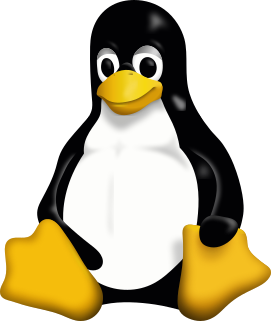Related Research Articles
The Free Software Definition written by Richard Stallman and published by Free Software Foundation (FSF), defines free software as being software that ensures that the end users have freedom in using, studying, sharing and modifying that software. The term "free" is used in the sense of "free speech," not of "free of charge." The earliest-known publication of the definition was in the February 1986 edition of the now-discontinued GNU's Bulletin publication of FSF. The canonical source for the document is in the philosophy section of the GNU Project website. As of April 2008, it is published there in 39 languages. FSF publishes a list of licences which meet this definition.

wxWidgets is a widget toolkit and tools library for creating graphical user interfaces (GUIs) for cross-platform applications. wxWidgets enables a program's GUI code to compile and run on several computer platforms with minimal or no code changes. A wide choice of compilers and other tools to use with wxWidgets facilitates development of sophisticated applications. wxWidgets supports a comprehensive range of popular operating systems and graphical libraries, both proprietary and free, and is widely deployed in prominent organizations.

The GNU Project is a free software, mass collaboration project that Richard Stallman announced on September 27, 1983. Its goal is to give computer users freedom and control in their use of their computers and computing devices by collaboratively developing and publishing software that gives everyone the rights to freely run the software, copy and distribute it, study it, and modify it. GNU software grants these rights in its license.

Open-source software (OSS) is a type of computer software in which source code is released under a license in which the copyright holder grants users the rights to study, change, and distribute the software to anyone and for any purpose. Open-source software may be developed in a collaborative public manner. Open-source software is a prominent example of open collaboration.
In computing, the Common Public License (CPL) is a free software / open-source software license published by IBM. The Free Software Foundation and Open Source Initiative have approved the license terms of the CPL.
Qt Extended is an application platform for embedded Linux-based mobile computing devices such as personal digital assistants, video projectors and mobile phones. It was developed by Qt Software, a subsidiary of Nokia, and when they cancelled the Qt Extended project, as it was free software, the community created a fork of it, the Qt Extended Improved project, and continued building. The QtMoko Debian-based distribution is the natural successor to these projects as continued by the efforts of the Openmoko community.

Free and open-source software (FOSS) is software that can be classified as both free software and open-source software. That is, anyone is freely licensed to use, copy, study, and change the software in any way, and the source code is openly shared so that people are encouraged to voluntarily improve the design of the software. This is in contrast to proprietary software, where the software is under restrictive copyright licensing and the source code is usually hidden from the users.
A source-code repository is a file archive and web hosting facility for source code of software, documentation, web pages, and other works, accessible either publicly or privately. They are often used by open-source software projects and other multi-developer projects to maintain revision and version history, or version control. Many repositories provide a bug tracking system, and offer release management, mailing lists, and wiki-based project documentation. Software authors generally retain their copyright when software is posted to a code hosting facilities.

Mercurial is a distributed revision-control tool for software developers. It is supported on Microsoft Windows and Unix-like systems, such as FreeBSD, macOS and Linux.
This is a comparison of free and open-source software licenses. The comparison only covers software licenses with a linked article for details, approved by at least one expert group at the FSF, the OSI, the Debian project or the Fedora project. For a list of licenses not specifically intended for software, see List of free content licenses.
The ISC license is a permissive free software license published by the Internet Software Consortium, nowadays called Internet Systems Consortium (ISC). It is functionally equivalent to the simplified BSD and MIT licenses, but without language deemed unnecessary following the Berne Convention.

Linux is a family of open source Unix-like operating systems based on the Linux kernel, an operating system kernel first released on September 17, 1991, by Linus Torvalds. Linux is typically packaged in a Linux distribution.

WTFPL is a GPL-compatible permissive license most commonly used as a free software license. As a public domain like license, the WTFPL is essentially the same as dedication to the public domain. It allows redistribution and modification of the work under any terms. The title is an abbreviation of "Do what the fuck you want to Public License".
In the 1950s and 1960s, computer operating software and compilers were delivered as a part of hardware purchases without separate fees. At the time, source code, the human-readable form of software, was generally distributed with the software providing the ability to fix bugs or add new functions. Universities were early adopters of computing technology. Many of the modifications developed by universities were openly shared, in keeping with the academic principles of sharing knowledge, and organizations sprung up to facilitate sharing. As large-scale operating systems matured, fewer organizations allowed modifications to the operating software, and eventually such operating systems were closed to modification. However, utilities and other added-function applications are still shared and new organizations have been formed to promote the sharing of software.

A free-software license is a notice that grants the recipient of a piece of software extensive rights to modify and redistribute that software. These actions are usually prohibited by copyright law, but the rights-holder of a piece of software can remove these restrictions by accompanying the software with a software license which grants the recipient these rights. Software using such a license is free software as conferred by the copyright holder. Free-software licenses are applied to software in source code and also binary object-code form, as the copyright law recognizes both forms.

The GNU Free Documentation License is a copyleft license for free documentation, designed by the Free Software Foundation (FSF) for the GNU Project. It is similar to the GNU General Public License, giving readers the rights to copy, redistribute, and modify a work and requires all copies and derivatives to be available under the same license. Copies may also be sold commercially, but, if produced in larger quantities, the original document or source code must be made available to the work's recipient.

Linux-libre is an operating system kernel and a GNU package.

GNU Health is a free / libre health and hospital information system with strong focus on public health and social medicine. Its functionality includes management of electronic health records and laboratory information management system.

F-Droid is a community-maintained software repository for Android, similar to the Google Play store. The main repository, hosted by the project, contains only free libre software apps. Applications can be browsed and installed from the F-Droid website or client app without the need to register for an account. "Anti-Features" such as advertising, user tracking, or dependence on nonfree software are flagged in app descriptions. The website also offers the source code of applications it hosts, as well as the software running the F-Droid server, allowing anyone to set up their own app repository.
References
- 1 2 Georg's Brave GNU World - GNU Project - Free Software Foundation (FSF)
- ↑ "BoardOfDirectors.en - FSIJ Webpage - Trac". Archived from the original on 2010-10-10. Retrieved 2009-10-30.
- ↑ FSIJ homepage http://www.fsij.org/wiki/WikiStart.en Archived 2009-09-21 at the Wayback Machine
- ↑ Google Code page https://code.google.com/soc/fsij/about.html